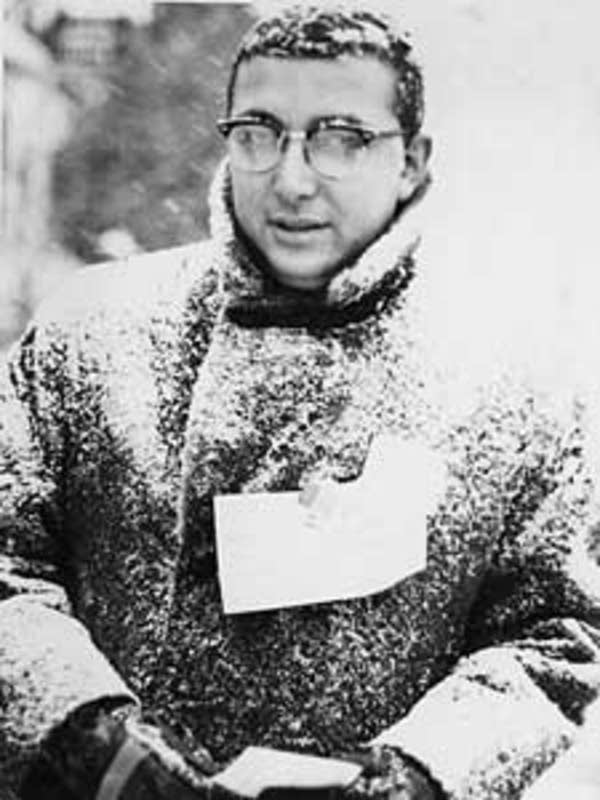Surprise in New Hampshire
Go Deeper.
Create an account or log in to save stories.
Like this?
Thanks for liking this story! We have added it to a list of your favorite stories.

Eugene McCarthy hit the campaign trail in New Hampshire, home of the year's first presidential primary.
"Let me say I've never been received so courteously by citizens as I have been by the people of New Hampshire in this half day of campaigning here," McCarthy said.
The British TV program "This Week" interviewed McCarthy as he campaigned in New Hampshire, and asked what makes him run.
"That's a hard question," McCarthy responded. "I suppose I'll spend most of the campaign explaining why I'm making this race. I'd say of all the people running, I'm probably the one who would least like the presidency. But it kind of fell to me to make the test I think on this issue since no one else would do it."
Turn Up Your Support
MPR News helps you turn down the noise and build shared understanding. Turn up your support for this public resource and keep trusted journalism accessible to all.
NEW HAMPSHIRE GIVES MCCARTHY SURPRISING BOOST
McCarthy might have had some doubts about his own candidacy. But his campaign was attracting a wide range of enthusiastic supporters, including celebrities of the day like Tony Randall, Joanne Woodward, Paul Newman and Lauren Bacall.

They lined up behind McCarthy and his anti-war message. They voiced radio ads and made campaign appearances in New Hampshire and Wisconsin.
Actor Dustin Hoffman recorded this ad.
"The nation is listening to what New Hampshire voters are saying about Eugene McCarthy. New Hampshire can help bring America back to its senses. Vote for Eugene McCarthy March 12th."
On the eve of the New Hampshire primary, McCarthy was asked to assess his chances for victory.
"I think the chances that we'll make a very good showing in New Hampshire are very good. As to whether or not we can get over the 50 percent mark or not, I think it's an open question," he responded. "But I think I have reason to believe on the basis of somewhat subjective judgments, but also with some reports that involve quantitative measures, that there is a chance that we might even win it."

McCarthy lost the Democratic primary to President Johnson, but by only 230 votes.
"If things continue as they are going, I think we'll have to try to advance the date of the national election," McCarthy said that night. "People are restless. They want to vote right now."
After his strong showing in New Hampshire, McCarthy was talking about his candidacy with new purpose and confidence. The campaign had moved beyond educating people about Vietnam. For the first time, McCarthy thought he could win the Democratic Party's nomination for president.
"We're not really out trying to raise an issue any longer for the attention of the people of this nation. Because the issue has been raised, and the people of this nation are aware of what that issue is, and that whole complex of issues," said McCarthy. "What we're doing is laying down a challenge to control the presidency of the United States of America."





